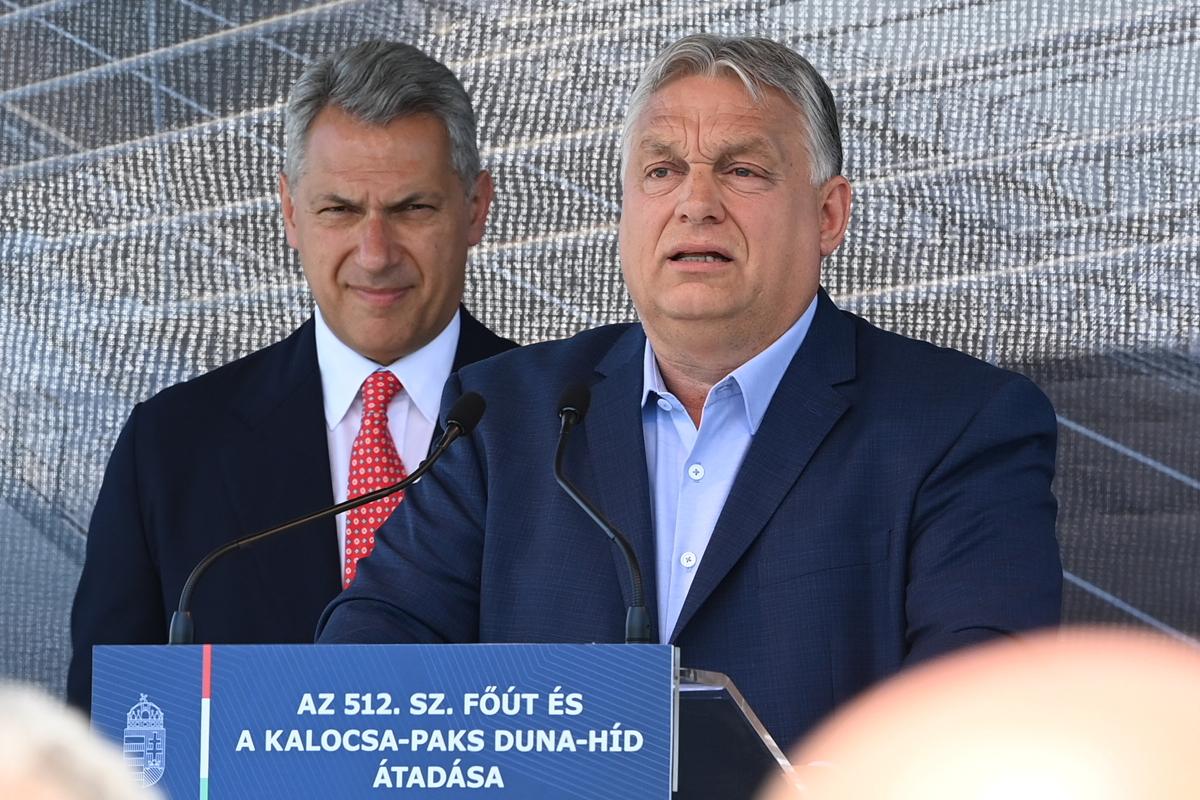Secret plans are being made within Fidesz: Viktor Orbán out in 2026?

According to the latest forecasts, Péter Magyár and the Tisza party are now comfortably ahead of the ruling party. According to analysts, there are increasing signs that a long-unthinkable possibility has emerged within the Fidesz leadership: to field a candidate other than Viktor Orbán in the 2026 elections, according to an article in VSquare by investigative journalist Szabolcs Panyi.
Plan B in the background: Orbán out?
Fidesz came to power in 2010, and Orbán’s government has enjoyed a two-thirds majority in parliament for 15 years. By completely redrafting the electoral law, they have created such a comfortable situation for themselves that Orbán is now serving his fourth term.
Over the past year, however, the political landscape in Hungary has undergone a significant shift with the emergence of Péter Magyar and the Tisza party, which, according to several opinion polls, is more popular than Orbán and Fidesz. Fidesz has tried to respond to the new situation with character assassination, smear campaigns, and promises of extra income for voters (such as personal income tax exemptions for mothers), but these do not seem to have been effective.
According to VSquare, several sources close to the government have confirmed that internal discussions have been going on for months about a scenario that exists only as a backup plan, and that Orbán’s succession is the topic of discussion. Orbán’s government has relied on secret opinion polls on numerous occasions when making decisions, and it appears that the results of these polls may influence the final decision this time as well.
Political analyst Gábor Török was the first to publicly raise the idea that Orbán’s resignation cannot be ruled out. According to sources, a new candidate could avoid a defeat that would overshadow Orbán’s political career and even reduce the disadvantage vis-à-vis the Tisza Party and Péter Magyar.
János Lázár’s name is the one most frequently mentioned as a possible successor. According to Gábor Török and Szabolcs Panyi, he could be one of the realistic options. Lázár has been actively building his political presence in recent times: not only does he hold street forums, but he has also set up a central communications team under his ministry, which effectively functions as an independent campaign machine.
Admittedly, thanks to a series of bad decisions, the transport minister is not exactly the most popular politician in Fidesz. Although Lázár denies having ambitions to become prime minister, he is already being treated as a real possibility within Fidesz, according to Panyi’s sources.
Viktor Orbán himself said in the Öt podcast that the system would continue to function without him. “If I were hit by a tram tomorrow, the government machine would continue to function after a few tears,” said the prime minister. He added that a significant generational shift had already occurred within Fidesz and that it was now led by a generation of experienced, well-trained politicians in their 40s and 50s.
Orbán has made surprising references to his future before. At an international press conference at the end of 2023, for example, he did not rule out continuing his career as a member of parliament. “I can serve the public interest as a member of parliament. I have a wife, five children, six grandchildren—what more could I want? Thanks, I’m fine,” he said.
Viktor Orbán has also proven himself to be a politician with exceptional abilities, as he has managed to keep the various powerful figures in his vastly expanded ruling party united as a team. However, if he were to leave the picture, power struggles could break out, which would be even less conducive to Fidesz’s re-election. Internal movements have already begun, with the Fidesz-affiliated Mandiner responding sharply to Lázár’s speculation, calling the idea downright ridiculous.
One thing is certain: for the first time in 16 years, it looks like Fidesz will lose the next parliamentary election, and this could prompt the party to take a completely new step. There is no doubt that the stakes are extremely high in the 2026 elections. After reaching their peak, they are now in a phase of declining popularity, as shown by Fidesz’s internal polls.
The party’s support is on a downward trend, while the Tisza Party and Péter Magyar are gaining momentum, and they are responding poorly to the issues raised by Magyar. A new face and a new candidate could provide a tactical advantage and bring new energy to the campaign. Of course, the question is whether Orbán is capable of recognising that he should not enter into a two-horse race. And is Orbán capable of relinquishing power after a total of 20 years as prime minister?
Also interesting: PM Orbán can be in real trouble: Péter Magyar leads all polls; Minister Lázár can run instead of Orbán
Read also:
PM Viktor Orbán takes EU’s Article 7 seriously as Hungary’s sovereignty laws trigger alarm







